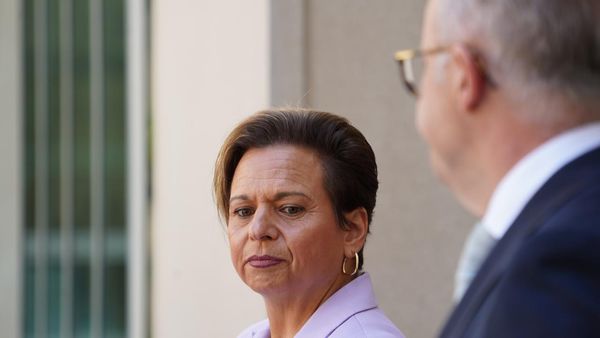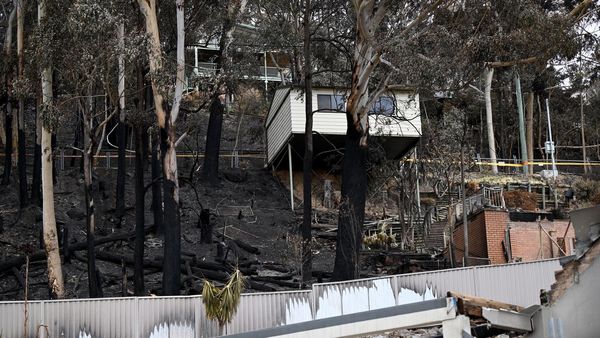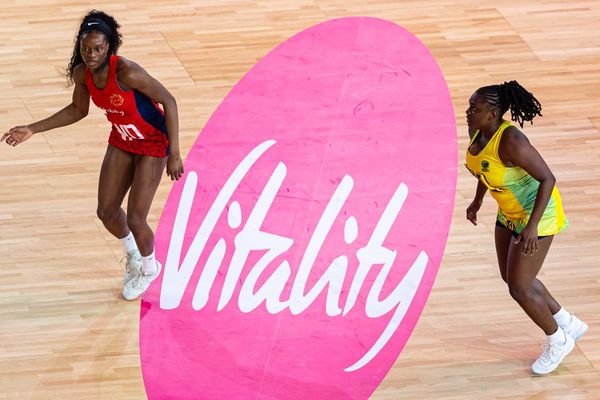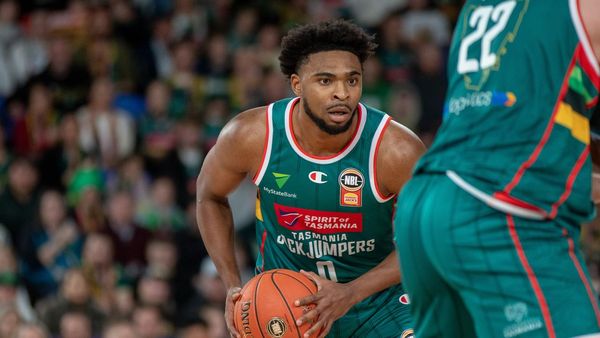
Before we even reach the opening titles of Then Barbara Met Alan – the BBC’s one-off drama depicting the fight for the 1995 Disability Discrimination Act (DDA), which aired on Monday night – Barbara has graffitied “piss on pity” on a bus stop and turned down going for a drink with Alan because, in her words, she’d just end up getting drunk and giving him a blowjob. It is an instruction to the audience from the off to reject their preconceptions: this is not disabled people as you might think.
The story of how disabled activists – led by Barbara Lisicki and Alan Holdsworth – used direct action to lobby for the UK’s first disability civil rights law is one you’d be forgiven for not having heard before. Disability history is not taught in schools. It is not dramatised for entertainment and is rarely the subject of documentaries; on the odd occasion that the subject is on British screens, it’s likely to have been from the US – as in the 2020 documentary Crip Camp. As a result, I’d wager most of the British public think disability rights were introduced in the 1970s along with other anti-discrimination laws, like those legislating against sex and race prejudice, and came about by benevolent authorities gifting rights to the grateful disabled.
As Then Barbara Met Alan shows, this couldn’t be further from the truth. When Take That were top of the charts and Rachel and Ross were “will they, won’t they?” in Friends, disabled people in the UK still had no basic rights enshrined in law. That meant it was perfectly legal for a company not to hire someone because they were Deaf or for a bus not to have ramps and be unable to take wheelchair-using passengers. These moments of everyday inequality are cleverly represented in the show and the characters’ lives. When Barbara and Alan get arrested for protesting about a lack of disability access, they have to be kept in a police van because the cells aren’t accessible. It’s a moment of irony that makes clear just how preposterous discrimination is once you really start to think about it.
One of the most striking parts of the programme comes when Barbara and her friends decide to protest over ITV Telethon, a charity drive show that raised money for disability charities, but really served to reinforce negative stereotypes about “pitiable crips”. Interspersed with real historical footage of bemused host Chris Tarrant and protesters, it sums up in just a few scenes how, for decades, British society was content to hand out charity to its disabled citizens but not rights. When change did come, it was not thanks to kindly non-disabled politicians and media organisations, but the fury and power of wheelchair users throwing themselves under buses. Their demands were simultaneously uncompromising and unremarkable. As the campaigners chant to passersby: “We want what you’ve got! Civil. Rights.”
That Then Barbara Met Alan is built around a love story between the two campaigners is itself refreshingly subversive. A society that often others disabled people as sexless, passive and sad naturally sees no need to grant them access to pubs, cinemas or gigs. On an early date, we see Alan and Barbara stopped from going into a restaurant because there’s no ramp. As a sign of what’s to come, Alan insists on challenging the manager and a waiter promptly brings a table out to the pavement so the couple can at least have their date outside. “We fight every battle,” Alan implores Barbara. “Do you understand that? Every battle.”
It would be a mistake to watch the show and think the story is over. As Alan himself says, after storming the House of Commons when the DDA is finally passed: “It won’t be enough. But it will be a start.” Any disabled person who has recently been unlawfully turned down for a job, denied healthcare during the pandemic, or been left to wet themselves on a train because there’s no accessible toilet knows this all too well. Research published this week by Euan’s Guide, the disability access charity, found that 59% of disabled people believe the pandemic has made access worse. Progress is a slow game.
And yet I can’t help but feel a little hope. Watching Then Barbara Met Alan, I was struck not only by the power of disabled activists but of seeing their story told in the mainstream. This was disability rights front and centre on primetime television, played by disabled actors and created by disabled storytellers. By the time the real-life Barbara was on screen in the final scene – with a ramp symbolically coming out of a bus to finally give her entry – I was crying. For what we gained. For what was taken from us for decades, and still is. For the campaigners who gave so much for my generation and those that do today. Roar in the streets and kiss your lover. This is what disability looks like – and the battle continues.
Frances Ryan is a Guardian columnist and author of Crippled: Austerity and the Demonisation of Disabled People – now out on audiobook







